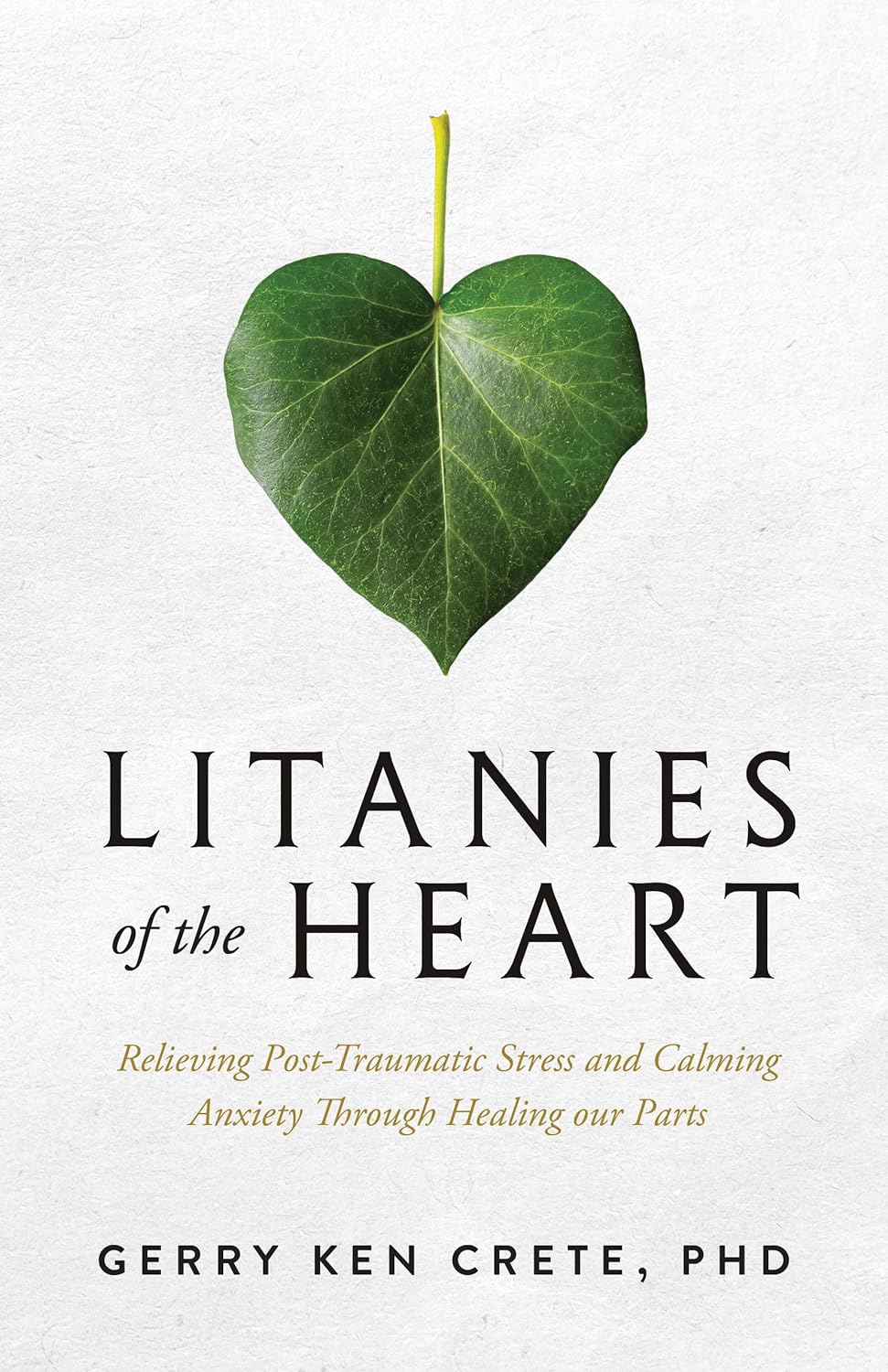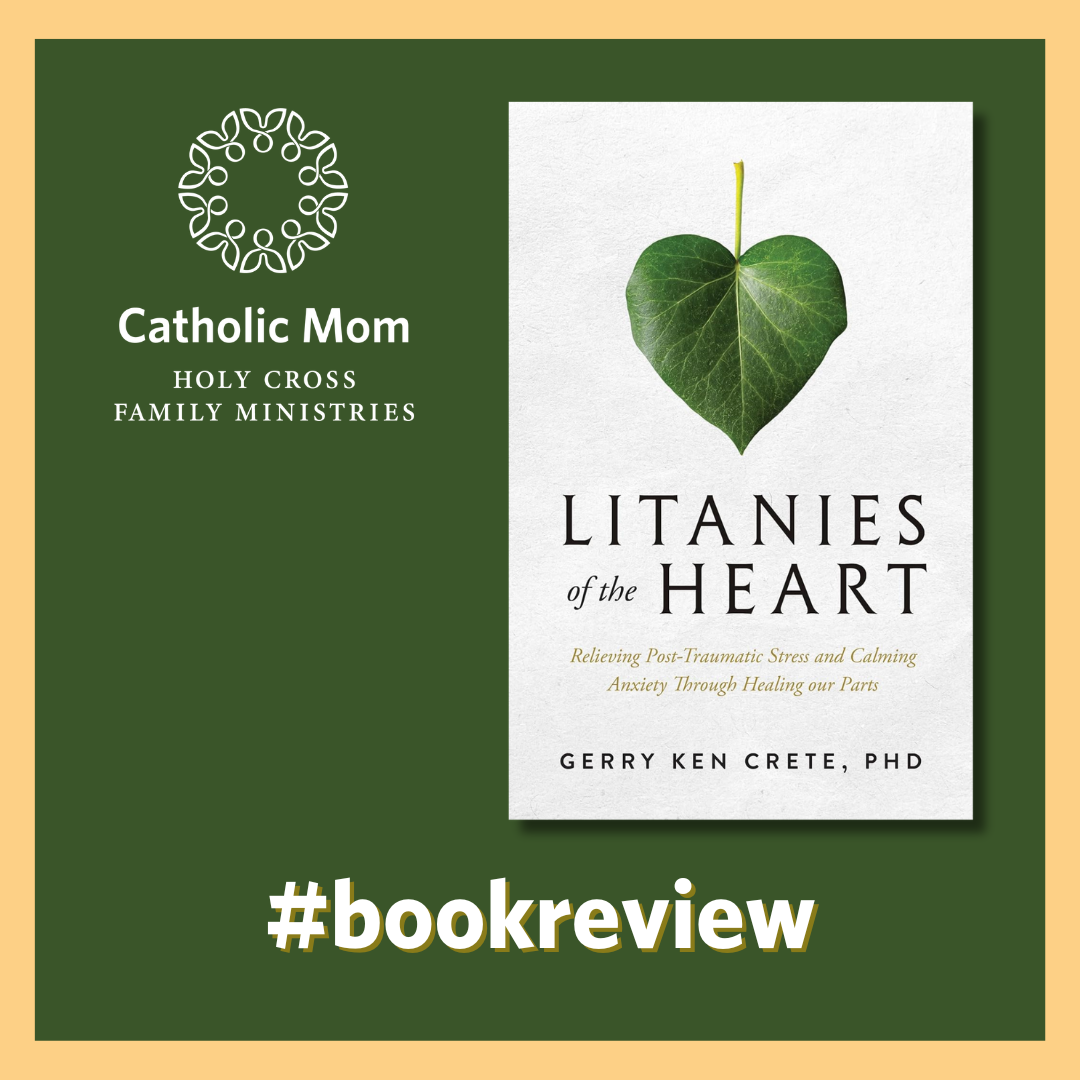
Maria V. Gallagher has discovered a terrific resource for spiritual healing in Gerry Ken Crete's book Litanies of the Heart.
The title captured my attention right away: Litanies of the Heart. But what really sealed the deal was the subtitle: Relieving Post-Traumatic Stress and Calming Anxiety Through Healing Our Parts.

So many of us have had to deal with trauma: a cataclysmic accident … abuse … an earth-shattering diagnosis. The painful incident can debilitate our heart and soul and leave us reeling. But author Gerry Ken Crete, Ph.D., offers us hope in the midst of the turmoil. While his book is not a substitute for professional therapy, I did find it a catalyst for emotional comfort. And with the emotional comfort came spiritual progress as well.
I was most fascinated by Crete’s treatment of the subject of post-traumatic growth. While trauma is a horrific event and we need to show compassion to the sufferer (including when the sufferer is our own self), some individuals achieve growth and actually thrive following trauma.
At first the concept seemed quite foreign to me—trauma can cause such long-lasting pain, after all—but Crete provides concrete examples of people who gained ground despite their traumatic experiences.
Foremost among them is Jesus. As Crete explains,
He experienced terrible torture, humiliation, and an inglorious death. And yet, despite all of that, He conquered death and returned in a glorified state. In His Resurrection, as in His Transfiguration, Jesus shows His true identity; He becomes hope actualized. (146)
Jesus is our hope in the midst of the most troubling circumstances. His ability to overcome unlocked for us the gates of heaven and saved us from our sins.
Still, a skeptic might say that Jesus, while true man, was also true God. Sure, God can overcome anything—but what about the rest of us? How are we to deal with the aftermath of trauma?
Crete points to the saints as providing us with stellar examples of how to experience post-traumatic growth. This passage was truly an “aha” moment for me. The more I thought about it, the more I realized that the saints carried scars too—yet, through God’s grace, were able to achieve sanctity. Crete notes:
St. Bernadette Soubirous and St. Therese of Lisieux suffered with tuberculosis and yet persevered in greater love. St. Maria Goretti suffered a deadly physical assault and yet forgave her attacker. St. Damien of Molokai minister to lepers, and before he himself died of leprosy, he worked with energy and zeal. (146)
Crete continues:
All kinds of trauma, even death, lose their power when our parts, united with the inmost self, are in communion with the God who sees us, knows us, encourages us, and abides with us. (147)
From such a hope-filled perspective, the trials of life lose their sting. I am reminded of those in 12-step programs who give thanks for the incident that brought them to recovery. Such a concept seemed difficult for me to grasp for the longest time, but now I see the wisdom of thanking God in all seasons—even the most distressing ones.
Litanies of the Heart is a ground-breaking book which weds the best of psychology and spirituality, helping the Christian to find peace in the aftermath of chaos. The reflection questions aid the reader in discerning the lessons that can be learned following painful events. I found this work to be a source of solace for me, offering a blueprint for healing that I can turn to again and again, particularly during trying times. It is comforting to know that a rainbow can appear after the most savage of storms.
Ask for Litanies of the Heart at your local Catholic bookseller, or order online from Amazon.com or the publisher, Sophia Institute Press.

Copyright 2024 Maria V. Gallagher
Images: Canva
About the Author

Maria V. Gallagher
Maria V. Gallagher spends her days advocating for women, children, and families. She is the mother of a beautiful ballerina and a member of the worldwide Cursillo movement. In her spare time, Maria likes to blog, walk, sing, dance, and fill the room with laughter. Read her work at MariaVGallagher.com.


.png?width=1806&height=731&name=CatholicMom_hcfm_logo1_pos_871c_2728c%20(002).png)
Comments